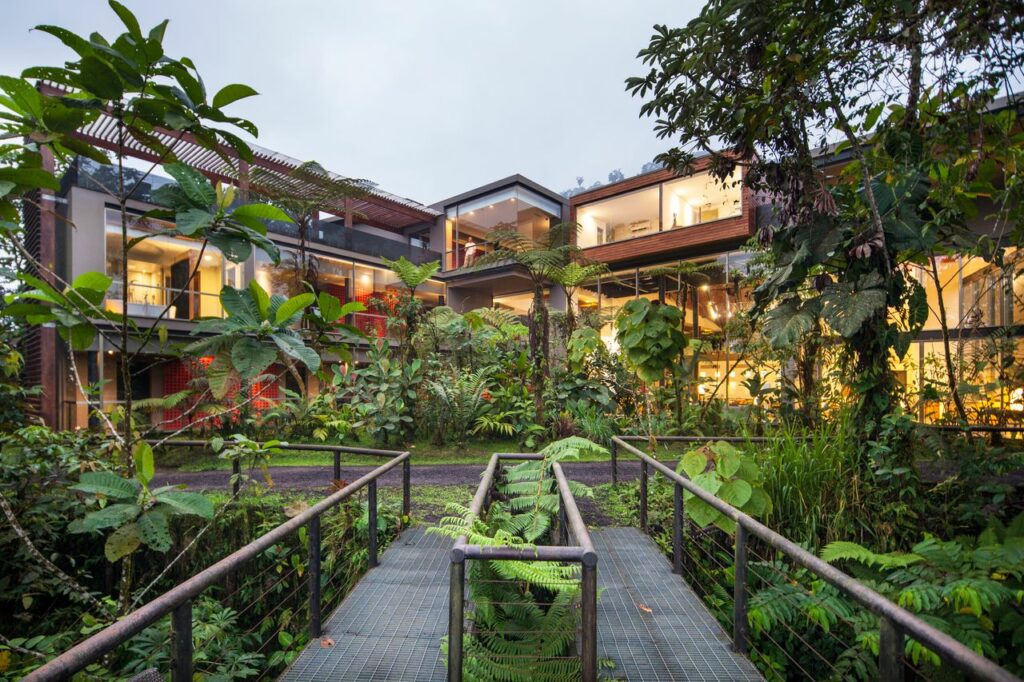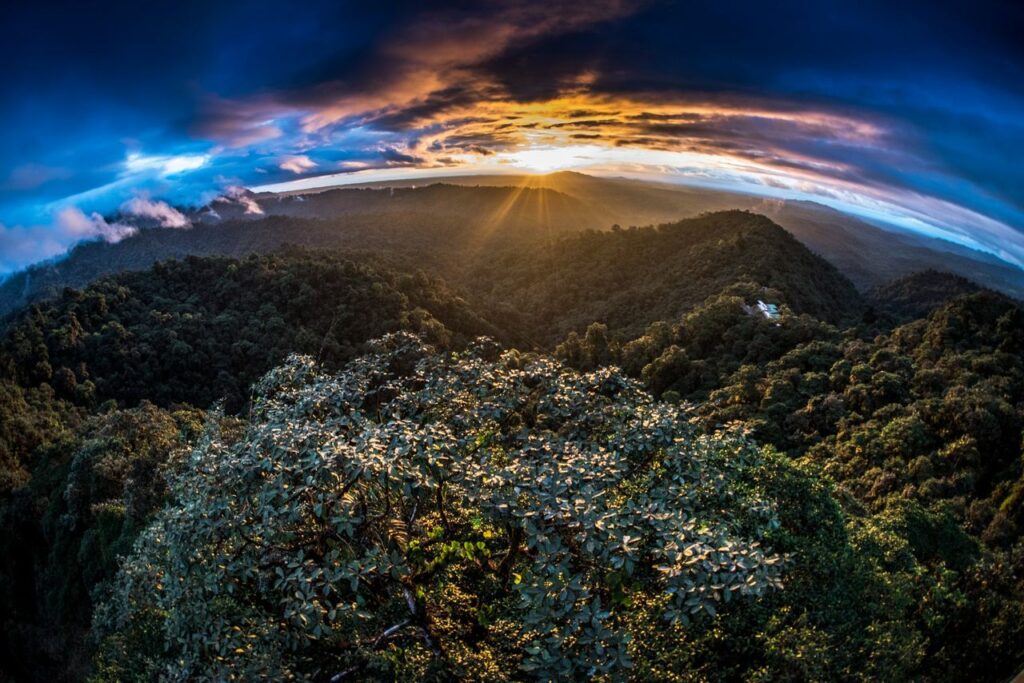With travel being restricted for a good six months (2020 where did you go!), plans to explore the globe are at the forefront of our minds… well, at least that’s true for all of us here at the BIRD’s nest! With news of endangered species and biodiversity being positively affected by this lack of travel, it is more important now than ever before to make sustainable travel choices.

Groundbreaking eco-lodge and centre for conservation Mashpi Lodge has been leading the game in sustainable luxury for a decade, and their recent partnership with revolutionary tech organisation Rainforest Connection only strengthens their dedication to uplifting and protecting their surrounding environment. Rainforest Connection – the world’s first real-time eco-acoustic monitoring company – have placed pioneering monitoring systems across the 2,500HA Mashpi Reserve. Ten ‘Forest Guardians’ – solar-powered mobile recording systems made out of repurposed, second-hand smart phones – have been carefully placed around the reserve with the primary aim of detecting sounds related to illegal deforestation and poaching.

Using Rainforest Connection’s real-time data, conservationists at Mashpi Lodge can protect areas of the reserve previously difficult to monitor, and implement strategic protection initiatives if required. How fantastic is that!

The extraordinary little Forest Guardians also record the sounds of animal species throughout the forest, which along with Mashpi’s existing camera trap projects, are creating a trove of eco-data that conservationists can use to track animal movement patterns, monitor endangered species and even make new species discoveries. Earlier this month, the Forest Guardians and camera traps picked up the movements of a water opossum (Chironectes minimus), which until now was not known to reside inside the reserve.

From Spring, the team will be introducing some super exciting new experiences to give guests the chance to get really hands-on, joining the conservationists in the lab to watch and review data as it comes in, and heading out for guided hikes, birdwatching excursions and night walks to spot particular species – so be sure to watch this space!

